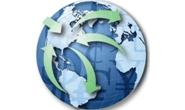Government/Policy

March 22, 2018
Trump Backtracks on 232, Exempts More Countries
Written by Sandy Williams
With the announcement that seven countries will be exempt from the steel tariffs that take effect tomorrow, less than one-third of U.S. steel imports will be subject to the tariffs, by some estimates. U.S. Trade Representative Robert Lighthizer said during a Senate Finance Committee hearing today that the President has decided “to pause the imposition of tariffs with respect to [the following] countries:” Canada, Mexico, the European Union, Australia, Argentina, Brazil, and South Korea.
Korea is the third largest importer of steel into the United States and an important ally in negotiating with North Korea. Korean media is reporting that the government offered concessions to the U.S. on automotive imports and exports in return for the tariff exemption. Reportedly, the U.S. will delay lowering a 25 percent tariff on Korean trucks that was to go into effect next year. In addition, Korea will consider easing controversial safety and environmental standards for U.S. auto imports.
Korean news source Chosunilbo reported, “At present, the U.S. can export up to 25,000 cars to Korea that meet only American safety guidelines, but the U.S. wants Korea to increase that quota. Cars accounted for 62 percent of the U.S. trade deficit with Korea last year, largely because nobody here is interested in the clumsily designed gas-guzzling cars American firms make.”
The European Union has been aggressively lobbying for exemption in the past few weeks. The EU trade commissioner vowed the region would “stand up to the bullies” over protectionism. The EU published a list of U.S. products on which it intended to impose retaliatory measures if the U.S. proceeded with its tariffs. The list included bourbon, rice, orange juice, clothing, shoes and Harley-Davidson motorcycles totaling to more than $3.5 billion in U.S. imports–and targeting goods from Trump’s voting base.
Brazil, the second largest exporter of steel products to the U.S., will have an exemption while it continues discussions to negotiate a permanent exclusion. “The new tariffs, says the White House message, will not apply as long as we are talking about the issue. Good news,” said Brazilian President Michel Temer following the announcement. In the meantime, Brazil will continue to pay the current tariffs of 0.9 percent for steel and 2 percent for aluminum.
Argentina exemptions will also be on hold during discussions. Argentine Commerce Secretary Miguel Braun told the Buenos Aires Times that the U.S. government was leaning toward looking at the issue on a case-by-case basis, rather than by country.
Australian trade minister Steve Ciobo said that being a good military partner to the U.S. and having a trade deficit with America was instrumental in convincing President Trump not to impose tariffs on Australian steel and aluminum. Australian analysts wondered what kind of quid pro quo the “pat on the head’ by the U.S. administration might lead to in the future.
Turkey is among the nations that are still not exempt. Steel producers in Turkey were counting on the tariff to be applied equally. “There should be no import tariff, of course,” said Namik Ekinici, Chairman of the Turkish Steel Exporters Association (CIB). “But if there must be an import tariff, then the right thing to do is to apply it equally to all countries.” Ekinici said the tariff would cause U.S. steel prices to rise, thus Turkish steel would remain competitive and not be seriously affected. Whether his assessment will now hold true remains to be seen.
House Ways & Means Committee Chairman Kevin Brady (R-TX) is urging the administration to set a “sunset” date for the tariffs and to implement them for “the absolute minimum period.”
“Their effectiveness should be constantly studied. They should be sunset after one year. If they are not having the intended effect, we should assess whether another policy would be more effective instead of continuing them,” said Brady.
The tariffs are to go into effect March 23.







